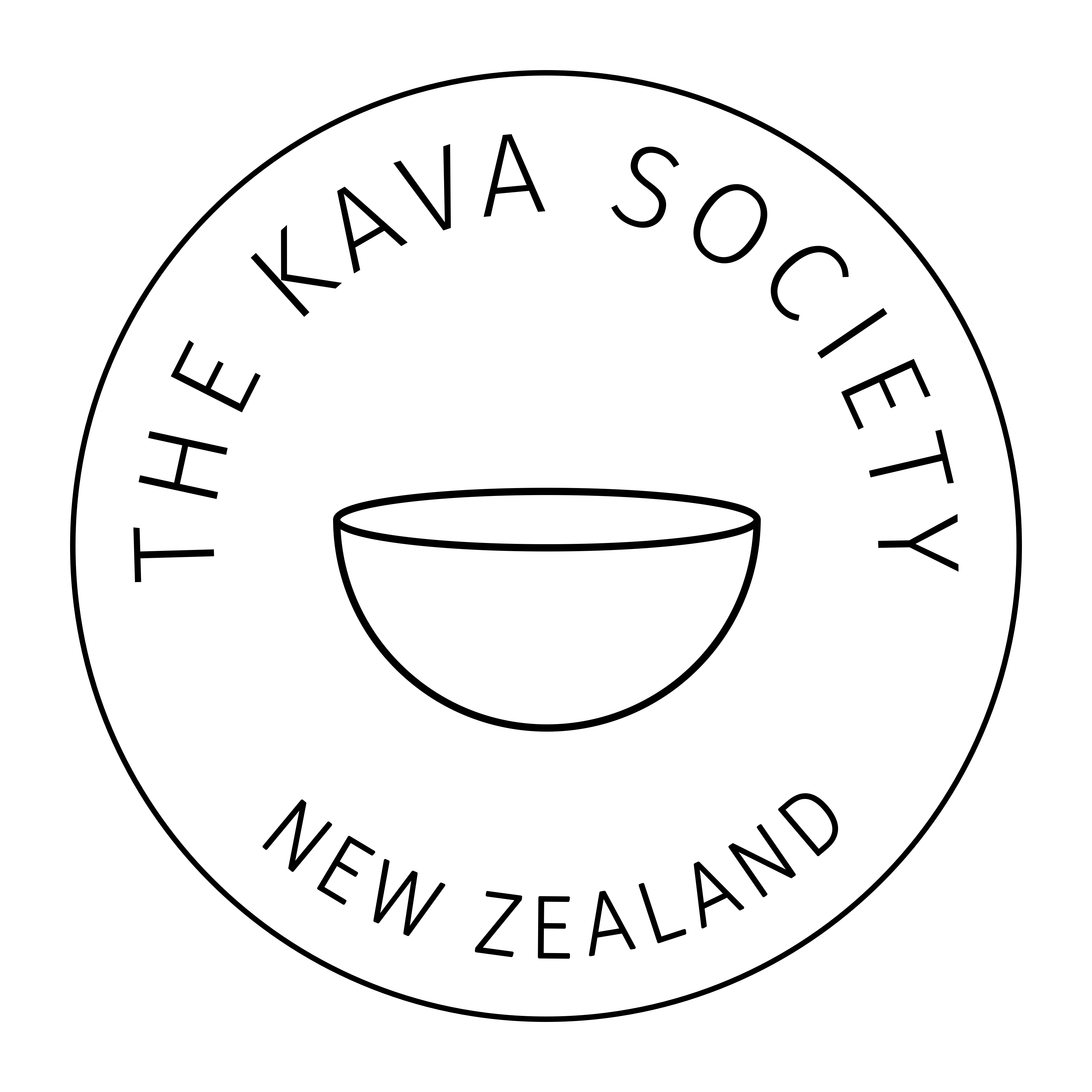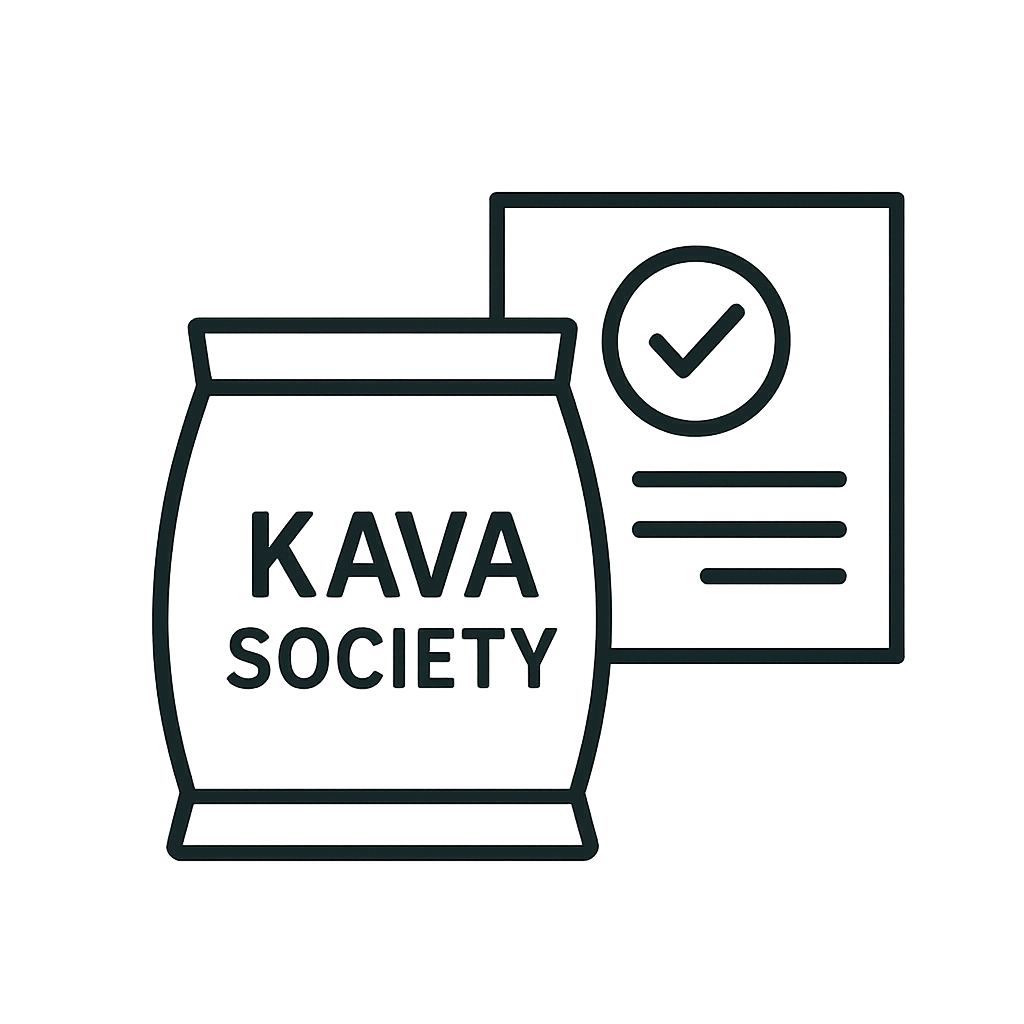FAQ

Below we present our answers to some of the most frequently asked questions about kava and its effects. If you can’t find an answer to your question, feel free to contact us:
Need help?
Frequently Asked Questions
The effects of kava depend on various factors, including the choice of cultivar, the quality of the specific product, and the methods of both preparation and consumption. Generally, kava is known for its relaxing properties and its ability to promote sociability and a sense of harmony—without diminishing mental clarity or awareness.
For many users, kava is a pleasant, slightly stimulating drink that relieves fatigue, relaxes the body after hard work or effort, clears the mind, and brings a gentle sense of well-being.
As noted by an early kava researcher, L. Lewin in 1927 (whose accounts can be read in Dr Lebot's famous book "Kava: The Pacific Elixir: The Definitive Guide to Its Ethnobotany, History, and Chemistry"):
When the mixture is not too strong, the subject attains a state of happy unconcern, well-being and contentment, free of physical or psychological excitement. At the beginning, conversation comes in a gentle, easy flow and hearing and sight are honed, becoming able to perceive subtle shades of sound and vision. Kava soothes temperaments. The drinker never becomes angry, unpleasant, quarrelsome or noisy, as happens with alcohol. Both natives and whites consider kava as a means of easing moral discomfort. The drinker remains master of his conscience and his reason. When consumption is excessive, however, the limbs become tired, the muscles seem no longer to respond to the orders and control of the mind, walking becomes slow and unsteady and the drinker looks partly inebriated. He feels the need to lie down. (...) The drinker is prey to exhaustion and feels the need to sleep more than any other sensation. He is overcome by somnolence and finally drifts off to sleep.
According to another scholar:
"Kava makes you quiet and able to think and listen to your thoughts. Your mind opens to what has been and should be done. The subjective feeling after kava is to be slowed down, for it almost forces one to become quiet. Sometimes it is like entering a light, relaxed dream. Some describe the kava state of consciousness as like looking into a mirror. One's mind goes beyond one's body and looks back. The altered state of consciousness is subtle and mild. Noise, interference with thought processes, bright lights, movement—all hinder the effect, the mildly altered stream of thought. The subtle effect is maintained only if there is peace and quiet."
Many people like to compare drinking kava to the opposite of drinking coffee. Both are often used as social beverages. While coffee may provide a mild buzz and an energising “kick,” kava is appreciated for its gentle, calming, and deeply relaxing effects.
Noble kava roots in their traditional form have been safely consumed by millions of Pacific Islanders for centuries, often on a daily basis. This extensive traditional use across millennia provides strong evidence for kava's safety when properly prepared and consumed.
This traditional safety record has been confirmed by major international health organisations:
The World Health Organisation (2016) concluded: "On balance, the weight-of-evidence from both a long history of use of kava beverage and from the more recent research findings indicates that it is possible for kava beverage to be consumed with an acceptably low level of health risk."
Food Standards Australia New Zealand (2004) confirmed: "The available data indicates that traditional kava beverage prepared from the root has a long tradition of safe use in the South Pacific Islands. It is compositionally different from kava products prepared by extraction using organic solvents. While excessive consumption of the traditional kava beverage may lead to adverse health effects, such as kava dermopathy, there is no evidence that occasional use of kava beverage is associated with any long-term adverse effects, including effects on the liver."
The Codex Alimentarius Commission paper states: "Kava has had at least a 1500-year history of relatively safe use, with liver side effects never having arisen in the ethnopharmacological data. (...) Clinical trials of kava have not revealed hepatotoxicity as a problem. This has been confirmed by further studies evaluating the toxicology of kava drink. Based on available scientific information it can be inferred that kava as a traditional beverage is safe for human consumption."
Understanding Past Safety Concerns:
While some older reports raised concerns about potential adverse effects, subsequent scientific reviews have provided important context. As scholars noted: "A detailed examination of the cases revealed a majority of reports that can be much more easily explained by known adverse effects of documented co-medications or alcohol abuse rather than by potential hepatotoxic effects of the kava preparations themselves."
Showman et al. (2014) found: "Only a fraction of the handful of cases reviewed for liver toxicity could be, with any certainty, linked to kava consumption and most of those involved the co-ingestion of other medications/supplements. That means that the incident rate of liver toxicity due to kava is one in 60-125 million patients [note that many of these users have likely consumed non-noble and impure kava products that have a recognized higher potential for causing adverse reactions]. For Pacific traditional users, despite the much higher kavalactone exposure, [kava] liver toxicity is either unheard of or unreported."
The New Zealand Association of Medical Herbalists observed: "Recent reviews on kava hepatotoxicity by a number of prominent toxicologists, hepatologists and medical herbalists all conclude that the incidence of this problem is extremely rare. (...) A comparison with paracetamol-associated hepatotoxicity, results in the conclusion that these potential risks for kava are dramatically less than that of a popular non prescription drug widely sold through grocery outlets."
Why Quality Matters:
Not all kava products are equal. Low-quality products can pose risks, particularly:
- Non-noble varieties (tudei/wild kava) which, as Dr Lebot notes: "experience with two-days cultivars, indicates that they might possibly be connected with observations of liver toxicity"
- Aerial parts of the plant containing pipermethysticine, a mildly toxic alkaloid never used traditionally
- Solvent-based extracts using non-polar solvents that "extract far more compounds than traditional methods of kava preparation and which may potentially present additional risks"
Schmidt et al. (2015) argue that the use of non-noble varieties in kava supplements "could at least partially explain the rare cases of adverse health reactions among Western consumers and the lack of any significant health problems among those who regularly consume noble varieties known to be safe through centuries of traditional experience."
Our Commitment to Exceptional Quality:
This is why we go to extraordinary lengths to ensure our kava meets the highest standards of quality and purity. We only sell pure, noble kava roots - the same varieties proven safe through centuries of Pacific Island use. Our products are:
- Made exclusively from hand-selected, organically grown noble cultivars
- Harvested to order and processed within days, often hours
- Meticulously prepared in HACCP-certified facilities
- Comprehensively tested using UHPLC analysis (superior to standard HPLC), full microbiological screening, and chemotype verification
- Provided with complete certificates of analysis exceeding FSANZ Standard 2.6.3 requirements
Important Considerations:
While noble kava has an excellent safety record, just like any food or herbal product, it can in very rare cases cause adverse idiosyncratic or allergic reactions in some people. It can also negatively interact with certain medications and recreational drugs. This is why you should always consult a medical professional before consuming kava if you take any medications or suffer from any medical condition. You should also abstain from using alcohol or any other recreational drugs when you use kava.
Final Note:
If you have any doubts or concerns, please do consult your physician. We are not medical professionals. What we present here is the scientific literature we are familiar with and our own experiences related to kava consumption. If you do suffer from an illness, take any medications, require treatment, or have any other concerns, we strongly advise that you consult your GP whether you can safely use kava.
Moderate use of noble kava roots by healthy adults is not associated with any notable side effects.
Stomach upsets/nausea is one of most common minor side effects of using kava. Some kavas (especially non-noble varieties, but also poorly peeled/processed kavas) are more likely than others to trigger nausea, but the consumption of excessive amounts of any type kava can lead to stomach upsets. We strongly advise against consumption of non-noble kavas and personally only drink noble, kavain-rich and very carefully processed kavas. It's important to consume kava slowly and in moderation. If you have a sensitive stomach, we recommend consuming very well strained traditional kava or instant kava to minimise any discomfort.
Kava is a diuretic, so unless you stay hydrated throughout your kava session and before you go to bed, you might experience minor dehydration and some related headache, especially if you consume excessive quantities of kava.
Heavy kava use is known to cause dry, flaky skin (sometimes called 'kava dermopathy') - this drying effect may be related to kava's impact on sebaceous glands, which produce the skin's natural oils. Interestingly, this same mechanism could explain why many kava users report improvements in their acne. Since acne is often driven by excess sebum production, kava's apparent ability to reduce sebaceous gland activity could have the dual effect of causing skin dryness with heavy use while also helping to control acne breakouts.Essentially, kava seems to dial down oil production in the skin - beneficial for acne sufferers dealing with excess oiliness, but potentially leading to dry, scaly skin with chronic heavy use. However, this condition is completely benign and fully reversible - sebaceous gland function returns to normal and the dry skin resolves within about a week of discontinuing or reducing kava use. It's simply a temporary effect of the plant's influence on oil production, not any kind of permanent change or damage to the skin.
A very small number of users can experience a rare (and mostly minor) allergic reaction to kava, usually characterised by red and/or itchy skin. It might be necessary to discontinue kava use if you experience such symptoms. In the unlikely event that these symptoms persist or if you experience a more serious allergic reaction to kava, you should get in touch with a medical professional.
Unlike alcohol, nicotine or many of the prescription drugs (not to mention some of the illegal substances), kava is not physically
addictive.
As explained by Dr Lebot: "By pharmacological standards, kava is not classified as a drug, as its consumption never leads to addiction or dependency".
In fact, kava can be characterized by the
so-called "reverse tolerance", where new users require far greater amounts of the plant to feel any effects than those who drink it regularly. At the same time, we acknowledge that any substance taken for recreational or medicinal purposes has a habit-forming potential.
Yes. Kava in its traditional form (i.e. in the form in which we sell and consume it) is regulated as food and falls under the Food Standards Code 2.6.3.
Kava generally has a rather bitter taste (the word “kava” means “bitter” in many Polynesian languages). A lot of people tend to assume kava must taste terrible earthy and like “mud”. This is only true for poorly cleaned, poorly dried and generally poorly processed dried kava roots (sadly this means it’s true for most commercially available kava powders).
By contrast, freshly harvested, carefully cleaned kava can have a complex, floral, vegetal flavour and scent with pleasant notes and inoffesive character. Likewise, properly processed kava powders (such as our carefully cleaned and dried kava powders) can retain much of the rather pleasant aroma and interesting tasting notes. The exact tasting notes and aroma depend on the kava cultivar as well as the growing conditions (soil, climate etc) in which it matured.
Kava works best when it is consumed on an empty stomach, so it is a good
idea not to eat or dink anything (other than water) for at least 4 hours before drinking kava. Kava is a diuretic, so it's important to drink plenty of water in between or after kava shells. Kava sessions can be followed by a light meal. For many people a warm meal after kava potentiates the effects of the beverage.
We strongly advise against mixing alcohol and kava. Kava appears to potentiate the negative effects of alcohol and the combination can lead to a greater risk of stomach upsets and painful hangovers. Best to skip alcohol on the same day when you drink kava.
Research indicates that when taken in symbolic amounts (medicinal dosage of up to 180mg kavalactones - roughly the equivalent of one small cup), kava is unlikely to impair driving ability.
At the same time, it has been suggested that consumption of higher amounts of kava may reduce motor skills and therefore "caution is advised when driving or operating heavy machinery". A recent study demonstrated that consumption of very high amounts of kava (3.6L over 6h, with an estimated total intake of kavalactones of up to 8,000mg) can cause a significant level of regression in temporal order judgement (associated with executive function, including decision
making, behavioral control and information processing, all very significant for driving ability) and hence impair ability to drive.
Our advice is to avoid driving or operating heavy machinery after kava.
There is insufficient research on kava safety during pregnancy and lactation. Kavalactones can cross the placental barrier and may also pass into breast milk, potentially exposing the developing fetus or nursing infant to these compounds. Whether this exposure could cause harm is simply unknown - there haven't been adequate studies to establish safety.
Given this lack of data and the potential for kavalactones to reach the baby, our advice is to avoid kava during pregnancy and breastfeeding. If you're considering kava use during these periods, it's important to discuss it with your healthcare provider who can help weigh any potential risks and benefits based on your individual situation.
Kava has a rich history in traditional Pacific Island medicine, where it's been used for centuries to address various conditions including headaches, menstrual discomfort, digestive issues, skin conditions, stress, and sleep difficulties. As ethnobotanist Dr. Vincent Lebot notes, modern research has identified chemical properties in kava's active compounds (kavalactones) that may explain some of its traditional uses, though not all traditional applications have been scientifically validated.
Current Research Areas:
Scientific interest in kava has focused primarily on:
- Anxiety: Multiple clinical studies, including research from the University of Queensland and Melbourne, have investigated kava's potential anxiolytic effects
- Sleep quality: A 2005 study suggested possible sleep-enhancement properties, aligning with many users' anecdotal experiences
- Cancer prevention: Preliminary research has explored correlations between high kava consumption and lower cancer rates in Pacific populations, with early-stage studies examining potential effects on colon, bladder, and lung cancers
Important Considerations:
While these research areas show scientific interest, it's crucial to understand that:
- Most studies remain preliminary or have small sample sizes
- Much more research is needed before any definitive therapeutic claims can be made
- Results from traditional use or laboratory studies don't automatically translate to proven medical benefits
Our Position:
We view and promote kava as a traditional beverage enjoyed for its relaxing qualities, not as a medicine or treatment for any health condition. While we respect kava's place in traditional medicine and find the emerging research interesting, we make no medicinal claims about our products. Anyone with health concerns or seeking treatment for medical conditions should always consult qualified healthcare professionals.



